Filter by
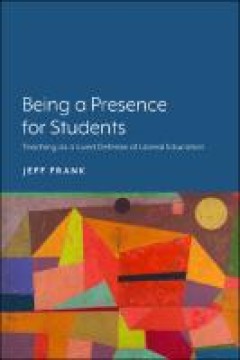
Being a presence for students : teaching as a lived defense of liberal education
This book offers a lived defense of liberal education. How does a college professor, on a daily basis, help students feel the value of liberal education and get the most from that education? We answer this question, as professors, each day in the classroom. John William Miller, a philosophy professor at Williams College from 1924-1960 and someone noted for his exceptional teaching, developed on…
- Edition
- -
- ISBN/ISSN
- 9781643150086
- Collation
- VIII, 135 p.
- Series Title
- -
- Call Number
- 370.112 FRA b

A connected curriculum for higher education
Is it possible to bring university research and student education into a more connected, more symbiotic relationship? If so, can we develop programmes of study that enable faculty, students and ‘real world’ communities to connect in new ways? In this accessible book, Dilly Fung argues that it is not only possible but also potentially transformational to develop new forms of research-based e…
- Edition
- -
- ISBN/ISSN
- 9781911576358
- Collation
- 182 p.; 22 cm
- Series Title
- -
- Call Number
- 378 FUN c
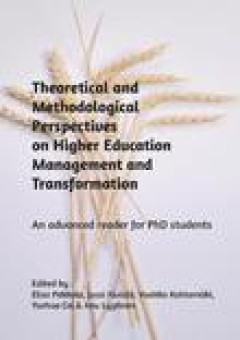
Theoretical and methodological perspectives on higher education management an…
As an interdisciplinary field of study, higher education research is still underdeveloped in terms of theoretical matureness and rigour. This book offers perspectives on how a range of methodological choices, theoretical approaches and conceptualisations from other disciplines can be successfully applied and utilised in the context of higher education. As a reader compiled of independent chapte…
- Edition
- -
- ISBN/ISSN
- 9789520308438
- Collation
- 218 p.
- Series Title
- -
- Call Number
- 378 THE t
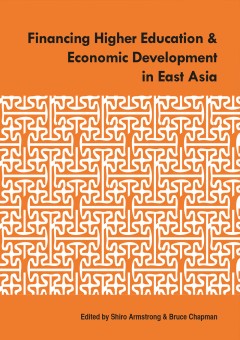
Financing higher education and economic development in East Asia
This volume addresses important issues to do with access to higher education and different models of its financing in the East Asia region. It is enriched by diverse perspectives from vastly different starting points and by the historical and institutional settings in the region. The issues are set out in the context of the value of higher education in economic development and how it contribute…
- Edition
- -
- ISBN/ISSN
- 9781921666636
- Collation
- viii, 281p. : ill.
- Series Title
- -
- Call Number
- 379.1214 FIN f
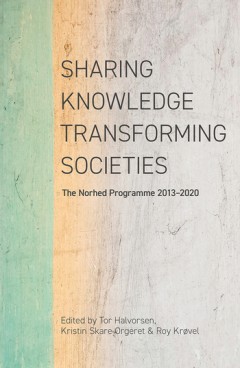
Sharing knowledge, transforming societies : the Norhed Programme 2013-2020
"In June 2016, the Norwegian Programme for Capacity Development in Higher Education and Research for Development (Norhed) hosted a conference on the theme of ‘knowledge for development’ in an attempt to shift the focus of the programme towards its academic content. This book follows up on that event. The conference highlighted the usefulness of presenting the value of Norhed’s different p…
- Edition
- -
- ISBN/ISSN
- 9781928502005
- Collation
- xxxix, 570p. : ill.
- Series Title
- -
- Call Number
- 378.6 SHA s
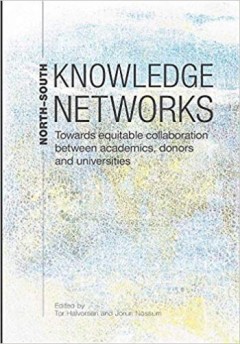
North-South knowledge networks : towards equitable collaboration between acad…
Since the 1990s, internationalisation has become key for institutions wishing to secure funding for higher education and research. For the academic community, this strategic shift has had many consequences. Priorities have changed and been influenced by new ways of thinking about universities, and of measuring their impact in relation to each other and to their social goals. Debates are ongoing…
- Edition
- -
- ISBN/ISSN
- 9781928331308
- Collation
- xv, 310p. : ill.
- Series Title
- -
- Call Number
- 378 NOR n
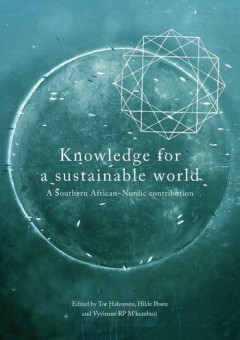
Knowledge for a sustainable world : a Southern African-Nordic contribution
The search for answers to the issue of global sustainability has become increasingly urgent. In the context of higher education, many universities and academics are seeking new insights that can shift our dependence on ways of living that rely on the exploitation of so many and the degradation of so much of our planet. This is the vision that drives SANORD and many of the researchers and instit…
- Edition
- -
- ISBN/ISSN
- 9781928331049
- Collation
- xi, 244p. : ill.
- Series Title
- -
- Call Number
- 338.96807 KNO k
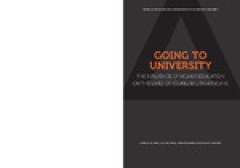
Going to university : the influence of higher education on the lives of young…
Around the world, more young people than ever before are attending university. Student numbers in South Africa have doubled since democracy and for many families, higher education is a route to a better future for their children. But alongside the overwhelming demand for higher education, questions about its purposes have intensified. Deliberations about the curriculum, culture and costing of p…
- Edition
- -
- ISBN/ISSN
- 9781928331698
- Collation
- ix, 164p. : ill.
- Series Title
- -
- Call Number
- 378.68 GOI g
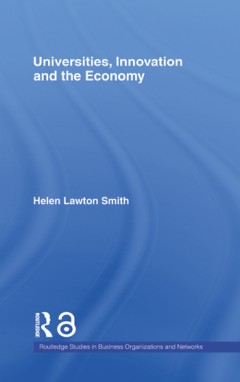
Universities, innovation and the economy
Universities are increasingly expected to be at the heart of networked structures contributing to society in meaningful and measurable ways through research, the teaching and development of experts, and knowledge innovation. While there is nothing new in universities’ links with industry, what is recent is their role as territorial actors. It is government policy in many countries that univer…
- Edition
- -
- ISBN/ISSN
- 9781134344185
- Collation
- xii, 265p. : ill.
- Series Title
- -
- Call Number
- 338.476200094 SMI u
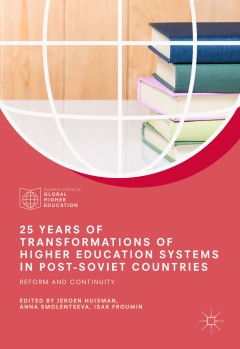
25 years of transformations of higher education systems in post-Soviet countr…
This open access book is a result of the first ever study of the transformations of the higher education institutional landscape in fifteen former USSR countries after the dissolution of the Soviet Union in 1991. It explores how the single Soviet model that developed across the vast and diverse territory of the Soviet Union over several decades has evolved into fifteen unique national systems, …
- Edition
- -
- ISBN/ISSN
- 9783319529806
- Collation
- xxviii, 482p. : ill.
- Series Title
- -
- Call Number
- 378 TWE t
 Computer Science, Information & General Works
Computer Science, Information & General Works  Philosophy & Psychology
Philosophy & Psychology  Religion
Religion  Social Sciences
Social Sciences  Language
Language  Pure Science
Pure Science  Applied Sciences
Applied Sciences  Art & Recreation
Art & Recreation  Literature
Literature  History & Geography
History & Geography